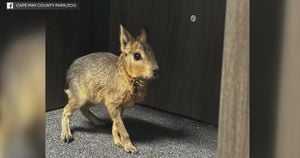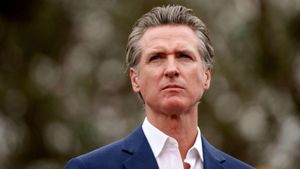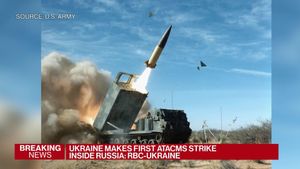Nasa has signaled some major adjustments to its upcoming Crew-9 mission slated for September 24, 2024, particularly impacting the astronaut crew and the operational dynamics aboard the International Space Station (ISS).
Originally, Nasa planned to launch four astronauts aboard the SpaceX Crew-9 mission. This consisted of veteran astronaut Nick Hague, alongside the mission specialist Aleksandr Gorbunov from Roscosmos, and other crew members. Unfortunately, the agency decided to scale down the mission to just two crew members, leaving two seats vacant.
This pivotal change means Nasa astronaut Sunita Williams will not return with Crew-9 as initially thought. Instead, she is now set to remain on the ISS until February 2025. Williams had launched to the ISS aboard Boeing's Starliner spacecraft back in June, and her return has now been noticeably delayed due to this uncrewed flight decision.
Nasa Chief Astronaut Joe Acaba explained the reasoning behind the decision, emphasizing the balancing act between ensuring experienced command and supporting the operational requirements of the ISS, particularly the management of Russian systems onboard. Acaba stated, "While we've changed crew before for various reasons, downsizing crew for this flight was another tough decision to adjust to, especially considering the crew has trained as a crew of four."
Previously planned crew members Zena Cardman and Stephanie Wilson will not participate due to this shift, but both remain eligible for future assignments. Despite the disappointment, both astronauts have supported their colleagues who are still flying.
Having already been through multiple space missions, Nick Hague is preparing for what will be his third launch, which will also see his total time spent in space surpassing the 200-day mark after his return. For Gorbunov, this mission marks his inaugural trip to space.
The launch is part of Nasa's continuing strategy to maintain human presence on the ISS, which has been active for nearly 24 years now, serving as a platform for research and international cooperation.
The decision to leave seats unfilled was caused by the recent determination to return Boeing's Starliner to Earth uncrewed, meaning Nasa had to make adjustments on the fly. This latest development reflects the agency's adaptive approach as it refines its operations and collaborates with commercial partners like SpaceX.
Space travel continues to evolve rapidly, with safety and efficiency requirements guiding many of these strategic decisions. Nasa's focus on sustainability aboard the ISS remains pivotal as the agency embarks on ambitious projects leading to future manned missions beyond low Earth orbit.



